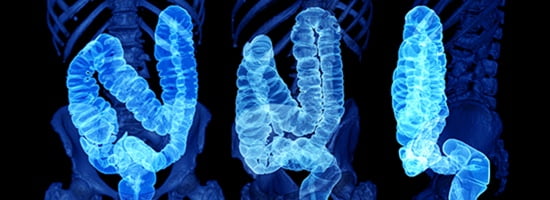Most people assume they have hemorrhoids when they have painful, swollen, bleeding tissue in the rectal area. This may be accurate, as about 89 percent of all Americans develop hemorrhoids at some point in life. Hemorrhoids are painful, itching or bleeding areas of varicose veins located in the anus and rectum. Hemorrhoids can result from pregnancy, straining while using the restroom, lifting heavy objects or sitting for long periods of time. They can get worse over the years, but fortunately, they can be treated quite easily. Over two thirds of all healthy individuals reporting for a physical examination have hemorrhoids, so this condition does not mean that a person is ill.
Not all rectal symptoms are related to hemorrhoids. Research from the Hemorrhoid Care Medical Clinic showed that 90 percent of colon and rectal cancer patients initially thought that they had hemorrhoids. Many Americans are completely unaware of the symptoms of colorectal cancer, so it is important to know the warning signs. Sometimes, colorectal cancer has no symptoms, but some people do experience:
- Excessive gas
- Blood in the stool
- Change in bowel habits
- Abdominal discomfort
- Change in shape and color of stools
- Feelings of incomplete evacuation
- Fatigue
- Constipation
If you have any of these symptoms, you should schedule an appointment with your primary care physician and ask for information about a colon screening. Colorectal cancer is the second-leading cause of cancer death in the United States, and 1 in every 17 Americans will get colorectal cancer during their lifetime. According to the American Cancer Society, 90 percent of all colorectal cancer cases and deaths are thought to be preventable with appropriate screening (Source: Hemorrhoid.net).
There are many screening methods for colon cancer, but the most effective screening test is the colonoscopy. A colonoscopy allows your doctor to view the entire length of your colon to determine the health of your digestive tract. A long, flexible tube called a colonoscope contains a camera which allows your doctor to locate any polyps or abnormalities. If a polyp is discovered during the procedure, your doctor can remove it during the colonoscopy for biopsy and further evaluation.
If you notice any changes in your rectal area or in your bowel habits, see your doctor right away. There’s no benefit to suffering in silence, so get the help you need by making an appointment.
